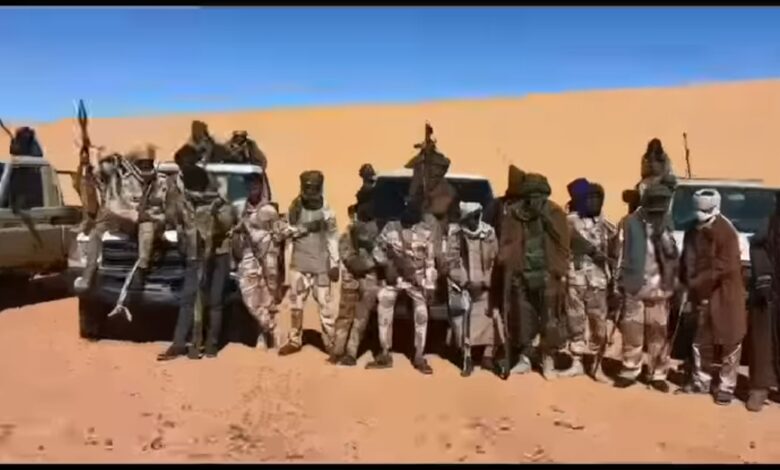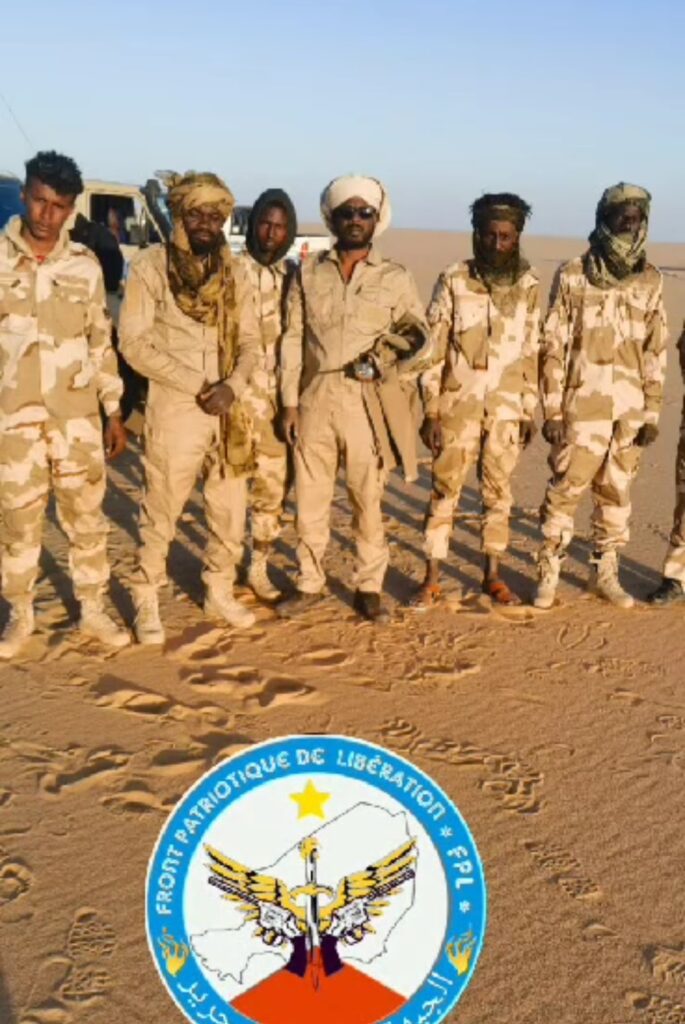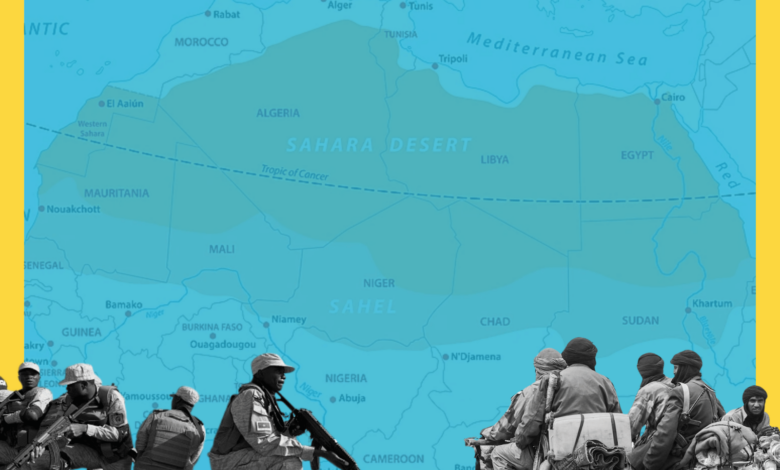Rebel Group Attacks On China-Funded Oil Project In Niger Have Wide Implications
The Front Patriotique de Libération initially stood in opposition to ousted President Bazoum, but they are now fighting for his release and attacking critical infrastructure in the Niger Republic.

On June 16, a rebel group in the Niger Republic, the Patriotic Liberation Front (FPL), claimed responsibility for a series of attacks targeting a Chinese oil project in the country. The FPL’s actions, a warning to the military junta currently in power, threaten to escalate into a full-scale assault on the oil pipeline project that exports crude to neighbouring Benin.
The group’s demands are many but primarily focus on the release of former President Mohamed Bazoum and the restoration of democracy in the West African country. They have also repeatedly called for the cancellation of a $400 million Chinese loan to the military government.
The nearly 2,000 km-long pipeline, extending to the port of Cotonou, was developed in partnership with the China National Petroleum Corporation (CNPC) and its subsidiary WAPCO. The project was intended to be a significant source of income for both Niger and China. However, the recent attacks have cast a shadow over its future.
The junta in Niger has condemned the attack as a “terrorist act” perpetrated by “malicious individuals.” They confirmed that six Nigerien military officers were killed during another attack on the Agadem oilfield on June 12. This violence has instilled fear in Chinese companies operating in the country, leading to a suspension of their activities, as announced on Wednesday, July 24.
Before the latest incident, the FPL claimed responsibility for attacking a military position in Séguédine, a town in central Niger. During this assault, several soldiers were killed, and military equipment was either confiscated or destroyed.
In February, the FPL ambushed Nigerien soldiers escorting gold miners on the Arlit-Tabarakat road in the Agadez region. There were conflicting claims after the ambush. The Nigerien Ministry of Defense reported inflicting significant damage on the FPL. In contrast, the group claimed to have killed 27 soldiers and wounded nine others, including an expatriate with a Ukrainian passport.

Who are the FPL?
The group (in French, Front Patriotique de Libération Niger) was founded in 2021 by a Nigerien-Toubou armed group operating near the Libyan border. Mahamoud Sallah, the group’s founder, initially fought against former President Bazoum but laid down his arms shortly before Bazoum’s ousting.
Now, the group has set its sights on “putting an end to the perilous misadventure of traitor General Tchiani,” according to a statement released on its Facebook page.
The FPL is highly active on social media, particularly platforms such as Facebook and TikTok, where it disseminates propaganda and press statements in both French and Hausa. In a video released after its recent attack, the rebels were seen operating in the desert and destroying crucial segments of the pipeline.
This latest assault has exacerbated regional tensions between Niger and Benin, which have been strained since the coup in Niger last year. Nigerien authorities have accused Benin of harbouring enemies with the intent of destabilising their country since the relocation of French troops from Niger to the Republic of Benin.
However, the FPL has distanced itself from any foreign support or French sponsorship, insisting that their sole aim is to restore democracy in Niger as patriotic fighters. They have vowed to continue attacking military positions and oilfields until their objectives are achieved.
Escalating violence
The Nigerien junta has responded to the FPL’s actions with increased military operations. The escalating violence poses significant challenges not only for the junta but also for international stakeholders invested in the country’s stability. The pipeline project, a cornerstone of Niger’s economic strategy, is now in jeopardy.
China’s investment in Niger’s oil infrastructure was seen as a strategic partnership, bolstering economic ties between the two countries. The attacks by the FPL threaten to derail this cooperation, with potential repercussions for both economies. Chinese companies have already begun suspending their operations, citing security concerns.
The FPL’s activities have also drawn the attention of neighbouring countries. An arrest warrant issued by Libyan authorities against Mahamoud Sallah prompted the FPL to release a statement in June asserting that they have no quarrel with neighbouring governments. They emphasised that all their operations are conducted within Nigerien territory, challenging the military government to confront them directly.
Regional stability
The FPL’s actions add to the growing list of security threats in Niger. The country has long been plagued by the activities of various armed groups, including Boko Haram, the Islamic State West Africa Province (ISWAP), Al-Qaeda in the Islamic Maghreb (AQIM), and various Tuareg rebel factions. These groups exploit the porous borders and socio-economic vulnerabilities in Niger, leading to widespread displacement and human rights abuses.
Niger’s strategic location in the Sahel region makes its stability crucial for regional security. The country has been a focal point in international efforts to combat terrorism and organised crime. The G5 Sahel Joint Force, which includes Burkina Faso, Chad, Mali, Mauritania, and Niger, aims to address these threats collaboratively.

However, the coup in Niger has introduced new complexities to these efforts. The military junta faces mounting diplomatic pressures and internal dissent. The FPL’s attacks have only intensified these challenges, creating an urgent need for comprehensive strategies that address the immediate security concerns and the underlying causes of conflict.
Niger, Mali, and Burkina Faso have jointly signed a military pact with the name Alliance of the Sahel States (AES) for what they describe as mutual defense and greater integration. This creates an avenue for cross-border collaboration, considering their refusal to return to the Economic Community of West African States (ECOWAS) after their suspension by the regional bloc.
Humanitarian impact
The humanitarian impacts of the ongoing violence in Niger are many. Due to different forms of violence in the country, thousands of people have been killed. The attacks on critical infrastructure, such as the oil pipeline, exacerbate these issues, disrupting livelihoods and access to essential services.
International aid organisations have struggled to operate in the increasingly volatile environment. The suspension of oil operations further compounds the economic hardships faced by the Nigerien population.
As the situation deteriorates, the European Commission has said Niger has over 4.3 million people — that’s 16 per cent of the population — in need of humanitarian assistance, with around 335,000 people displaced.
Although most of the sanctions on Niger have been lifted, aid groups say there is an urgent need for coordinated humanitarian assistance to address the immediate needs of those affected by the conflict.
According to the European Commission, Niger has the 11th highest under-five mortality rate in the world, with 48 per cent of its children living below the monetary poverty line.
A path forward
The path to stability in Niger remains uncertain. The international community is trying to balance support for Niger’s military efforts with pressure for democratic reforms. The release of former President Bazoum and the restoration of civilian governance are critical steps in this process.
The military junta in Niger has said it will return to democracy in three years. However, a year after the coup, the ousted president Bazoum has remained in detention despite numerous calls from groups and foreign governments to release him unconditionally.
On Tuesday, July 24, France issued a statement saying it was concerned about his detention and “strongly condemned it.” The country also expressed concern about lifting Bazoum’s immunity from prosecution, “which could have consequences for the conditions in which he is detained.”
Bazoum was last seen when mediators visited his detention facility in 2023, but his situation deteriorated after the military junta accused him of trying to escape to France.
Support Our Journalism
There are millions of ordinary people affected by conflict in Africa whose stories are missing in the mainstream media. HumAngle is determined to tell those challenging and under-reported stories, hoping that the people impacted by these conflicts will find the safety and security they deserve.
To ensure that we continue to provide public service coverage, we have a small favour to ask you. We want you to be part of our journalistic endeavour by contributing a token to us.
Your donation will further promote a robust, free, and independent media.
Donate HereStay Closer To The Stories That Matter




